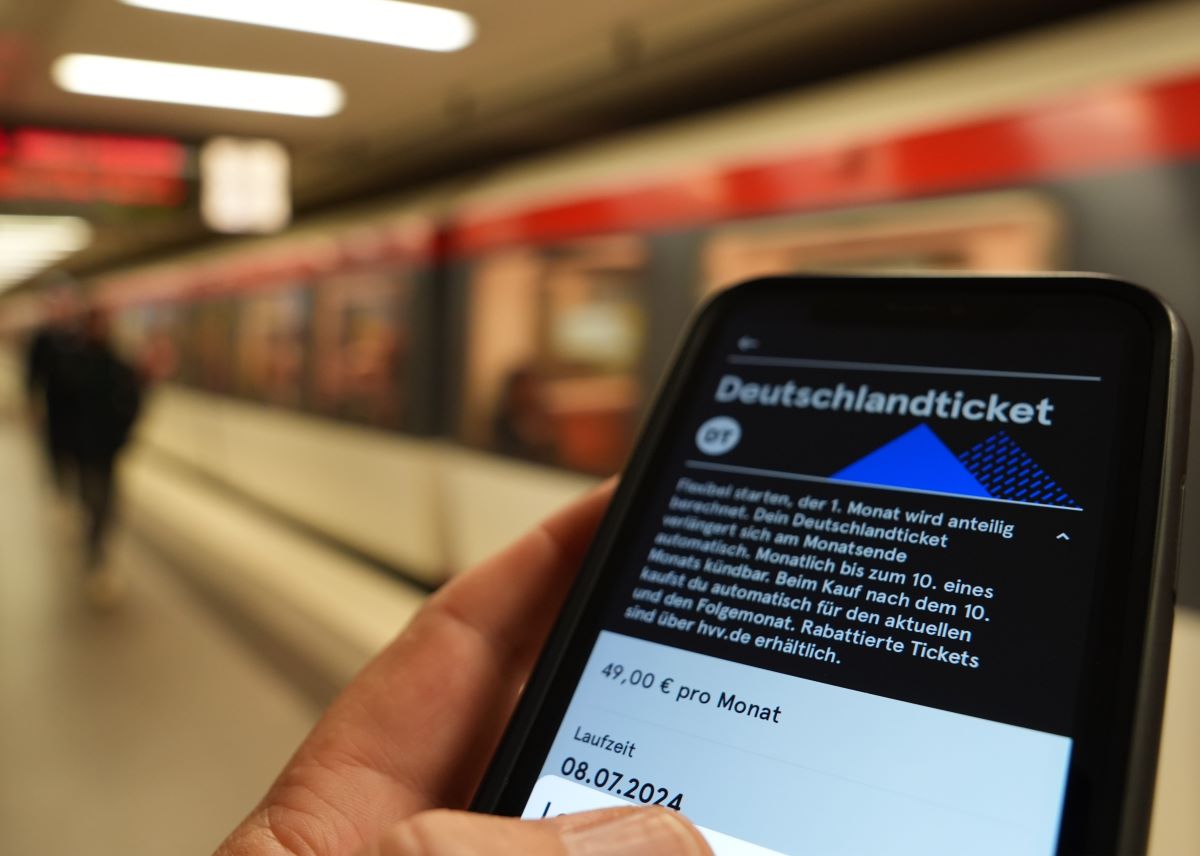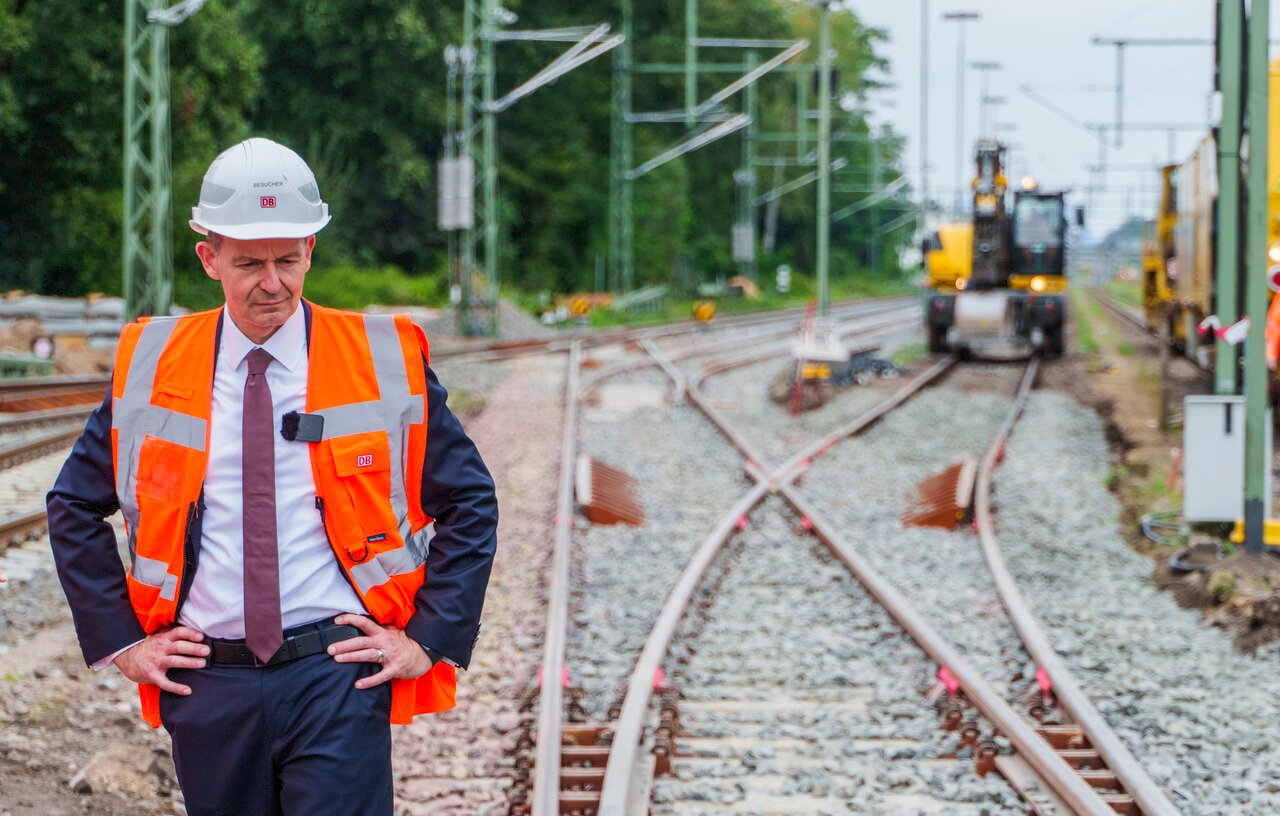Since it was launched back in May 2023, Germany's Deutschlandticket has been hugely popular, attracting around 13 million subscribers to its promise of low-cost, flexible travel across the country.
For €58 per month, ticket holders can travel on any buses, metros, trams, and local and regional trains nationally - not to mention some ferries and even a cable car or two.
According to Oliver Wittke, spokesperson for the Rhein-Ruhr transport operator, the travel pass is "the biggest success story in public transport" in several decades. However, after the February 23rd elections, the future of the Deutschlandticket appears to hang in the balance.
In recent weeks, angry debates about the financing of the ticket have flared up again, while senior politicians from the centre-right Union have said they want to discontinue it.
With the CDU/CSU parties currently leading in the polls, this has fuelled fears that the subsidised travel pass may well be on its way out. Here's what we know so far.
What has the Union been saying about the Deutschlandticket?
Asked about the future of the ticket back in November, CDU leader Friedrich Merz was decidedly non-committal.
The Deutschlandticket posed a "difficult question", he said, that could only be answered after a closer look at the budgets for the coming years.
The conservative leader said his party would like to keep "some kind of Deutschlandticket" - but added that tough negotiations over who would finance it, and how, would have to take place.
In recent days, however, senior CDU and CSU politicians have been more forthright with their comments on the travel pass. "We have to be honest: the Deutschlandticket can no longer be financed beyond 2025," Christian Haase (CDU), the budget policy spokesperson for the CDU/CSU parliamentary group, told Politico on Tuesday.
Instead of relieving those who could afford to pay more for their transport, the government should invest in better infrastructure, he added.
READ ALSO: Where rail passengers can expect disruptions in Berlin and Brandenburg in 2025
Haase's comments come after Bavaria's transport minister, Christian Bernreiter, announced that his state would no longer finance the Deutschlandticket after 2025. According to the CSU politician, the €58 travel pass was a federal government project and should therefore be financed entirely by the federal government.

This was also the view of CSU leader and Bavarian state premier Markus Söder, who told RND that a future CDU-led government would find a solution to the ongoing funding issues.
"The ticket is not called the Bayern-Ticket or Bremen-Ticket," he told RND. "It's called the Deutschlandticket. So the federal government has to find a solution as to how to proceed."
Söder slammed the fact that the ticket benefited people in urban areas more than those in rural ones, and called for an increase in the commuters' allowance - which mostly benefits drivers - to compensate.
"It is also unacceptable for Bavaria to pay €400 million for the Deutschlandticket while at the same time the railway lines - which are meant to be paid for by the federal government - are underfunded," he said.
READ ALSO: Why Berlin is getting rid of the €29 ticket
What does the CDU/CSU manifesto say?
Strangely enough, not a great deal. The term Deutschlandticket is not used at all in the entirety of the 82-page document, and the section on mobility begins with a bullet point titled: "Yes to cars".
On public transport specifically, the parties say they want to make this mode of transport "more attractive and reliable".
"It is important to have local public transport that meets demand and is fit for the future," the manifesto states.
"This also includes a reliable and robust infrastructure and an attractive range of services in urban and rural areas. We want to create new transparency in the financing of local public transport and ensure adequate funding."
In addition, the Union says they want to encourage more private investment in transport infrastructure, make infrastructure planning less bureaucratic, and remove barriers to all modes of transport so people can make the choice that is right for them.
But weren't the financial issues solved last year?
They were - but only temporarily. Back in September, transport ministers agreed on an emergency plan to secure the financing of the ticket throughout 2025.
This involved increasing the cost of the ticket from €49 per month to €58 - an increase of €9 to subscribers in total.
READ ALSO: What we know so far about the Deutschlandticket's price hike
It also involved an agreement for the federal government to provide €1.5 billion in additional subsidies, with the states also providing €1.5 billion in additional funding between themselves.
However, this funding was only set in stone until the end of this year, and no concrete proposals were put forward on to secure the future of the ticket after that.

How have people responded to threats to cancel the €58 ticket?
So far, the backlash to the CDU and CSU comments has been fierce - and has come from multiple political corners.
Speaking to Deutschlandfunk on Tuesday, Oliver Wittke, spokesperson for the Rhein-Ruhr transport company and former CDU politician, praised the ticket and criticised Bavaria's plans to withdraw financial support.
"The three million passengers that travel with us every day have overwhelming decided in favour of the ticket," he explained. "This is the biggest success story in public transport of the last 40 years."
According to Wittke, the Deutschlandticket has contributed to a seven percent increase in passenger numbers in the region in the past year. Meanwhile, 75 percent of the company's revenues now come directly from the ticket, which has allowed Rhein-Ruhr to do a major reform of local tariffs.
Nevertheless, the transport expert said the ticket remained "far below its possibilities" due to the endless uncertainty over funding.
READ ALSO: What's the secret behind Germany's most punctual railway line?
In an interview on ARD, Federal Transport Minister Volker Wissing responded incredulously to plans to end the ticket.
"That would be fatal," said Wissing. "With the Deutschlandticket, we modernised public transport, we pushed forward the digitalisation of public transport, and most of all, we offered relief to the working middle class."

The former FDP politician also accused conservatives of contradicting themselves by placing greater costs on the middle class after saying they want to offer relief.
Passenger advocates and climate groups have also spoken out against the plans.
The discussion about the future of the ticket is "not only annoying, it also unsettles people", said Dirk Flege, Managing Director of passenger group Pro Bahn. "It is a matter of common sense to hold on to this extremely popular offer."
Meanwhile, Greenpeace mobility expert Marissa Reiserer said the Union's comments showed "shockingly backward ideas of mobility and socio-political ignorance".

Comments